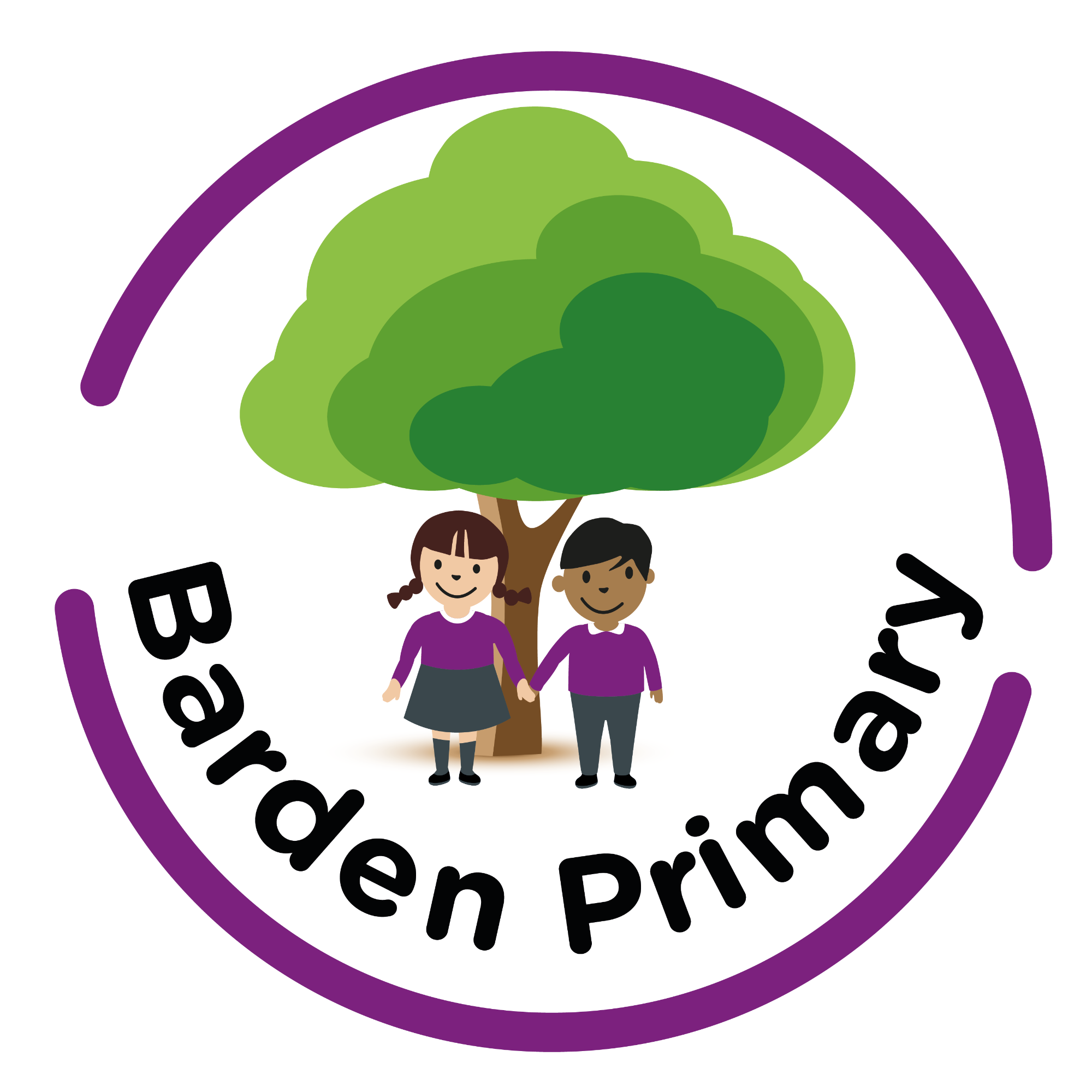PE

Barden's PE Curriculum Rationale
At Barden Primary School, we believe P.E. is essential for the promotion of healthy lifestyles and positive attitudes to learning. P.E. develops pupils’ physical competence and confidence and develops their ability to perform a range of activities. It promotes physical skilfulness, physical development and knowledge of the body in action. Physical Education provides opportunities for pupils to be creative, competitive and to face up to different challenges as individuals, groups and teams. The independence of the children is a high priority, as it helps to develop them holistically, providing skills they can transfer into other areas of the curriculum. Pupils learn how to plan, perform and evaluate actions, ideas and performances to improve their quality and effectiveness. Through this process, pupils discover their aptitudes, abilities and preferences and learn to make choices about how to get involved in lifelong physical activity.
Early Years Foundation
In the Early Years Foundation (EYFS) the children learn how to perform fundamental movement skills (running, jumping, catching and throwing), both individually and in small groups. The children start to develop their agility, balance and coordination in increasingly challenging activities. The children will start to develop key values such as problem-solving, communication, teamwork and sharing.
Key Stage 1
In KS1, children continue to develop their fundamental movement skills (FMS) which they started to develop during their time in EYFS. The children will continue to develop their agility, balance and coordination with increasing competency. They will apply their FMS in a wide range of different challenging team and individual activities and games throughout their time in KS1. The children will learn to master the fundamental movement skills, which are:
- Running
- Jumping
- Hopping
- Skipping
- Side gallop
- Underarm throwing
- Overarm throwing
- Rolling a ball
- Catching a ball
- Bouncing a ball
Once the children show a higher level of competence with regards to their FMS, they will then start to apply these skills to attacking and defending situations. These do not have to be sport specific, simply situations designed to challenge the skills they have been developing. The children will perform dances using simple movement patterns both individually and in collaboratively.
Key Stage 2
In KS2, children will use their knowledge sustained in KS1 regarding the development of their FMS to develop a broader range of skills. They will learn how to apply them both in isolation and in a sequence of movements. Through PE, the children will develop their key values including communication, teamwork and sportsmanship. Through our wide breadth of activities, the children are taught to:
- Use running, jumping, throwing and catching in isolation and in combination
- Play competitive games, modified where appropriate [for example, badminton, basketball, cricket, football, hockey, netball, rounders and tennis], and apply basic principles suitable for attacking and defending
- Develop flexibility, strength, technique, control and balance [for example, through athletics and gymnastics]
- Perform dances using a range of movement patterns
- Take part in outdoor and adventurous activity challenges both individually and within a team
- Compare their performances with previous ones and demonstrate improvement to achieve their personal best.
Swimming at Barden
All children in KS2 have Swimming included in their long-term plan for the academic year. This enables the children to develop and progress their skills in swimming on a yearly basis.
Long Term Plan
|
|
AUTUMN 1 |
AUTUMN 2 |
SPRING 1 |
SPRING 2 |
SUMMER 1 |
SUMMER 2 |
|
EYFS |
FMS-Superworm |
FMS- Space |
FMS-Transport |
FMS-Rumble in the jungle |
FMS- Jack and the Beanstalk |
FMS- Seaside |
|
YEAR 1 |
Baseline- Lost and Found |
Dance-Animals |
FMS-Catching and Bouncing |
FMS & Gym- Jack and the Beanstalk |
Gymnastics Core Task 2 |
Athletics |
|
FMS- Rolling a Ball |
FMS- Overarm Throw |
Gymnastics Core Task 1
|
Dance- Toy Story |
FMS-Supertato |
FMS- Thri Throlf |
|
|
YEAR 2 |
FMS- Playground Games |
Games-Net and Wall |
Gymnastics Y2 |
FMS- Kicking |
Games- Striking and Fielding |
FMS End of KS1 Assessment |
|
FMS- Bounce a Ball |
Dance- Once upon a Giant |
Games-Piggy in the Middle |
Dance- Fire of London |
OAA The great outdoors |
Athletics |
|
|
YEAR 3 |
Swimming |
Dance- Egyptians |
Creative Games- Tag and Target |
Dance- Rock and Roll |
Invasion Games- Basketball |
Striking and Fielding- Cricket |
|
Invasion Games- Netball |
Net and Wall Core Task 1 |
Gymnastics Core Task 1 |
OAA- Team Work and Problem Solving |
Target- Dodgeball |
Athletics |
|
|
YEAR 4 |
Invasion Games- Rugby |
Swimming |
Swimming |
Gymnastics Core Task 1 |
OAA- Trust and Trails |
Striking and Fielding Rounders |
|
Dance- Around the World |
Net and Wall Core Task 2 |
Invasion- Touch Ball |
Health Related Fitness |
Dance- Romans |
Athletics |
|
|
YEAR 5 |
Invasion Games- Netball |
Gymnastics Core Task 1 |
Net and Wall- Badminton |
OAA- Problem Solving 1 |
Invasion Games- Football |
Striking and Fielding- Cricket |
|
Dance- The Haka |
Creative Games |
Dance- Hero’s and Villan’s |
Swimming |
Swimming |
Athletics |
|
|
YEAR 6 |
Net and Wall- Tennis |
Dance- Dance through the ages |
OAA- Team work and Problem Solving 2 |
Invasion games- Hockey |
Striking and Fielding Cricket |
Striking and Fielding- Rounders |
|
Invasion games- Rugby |
Creative Games |
Gymnastics Core Task 1 |
Dance- Earthlings |
Athletics |
Swimming |
